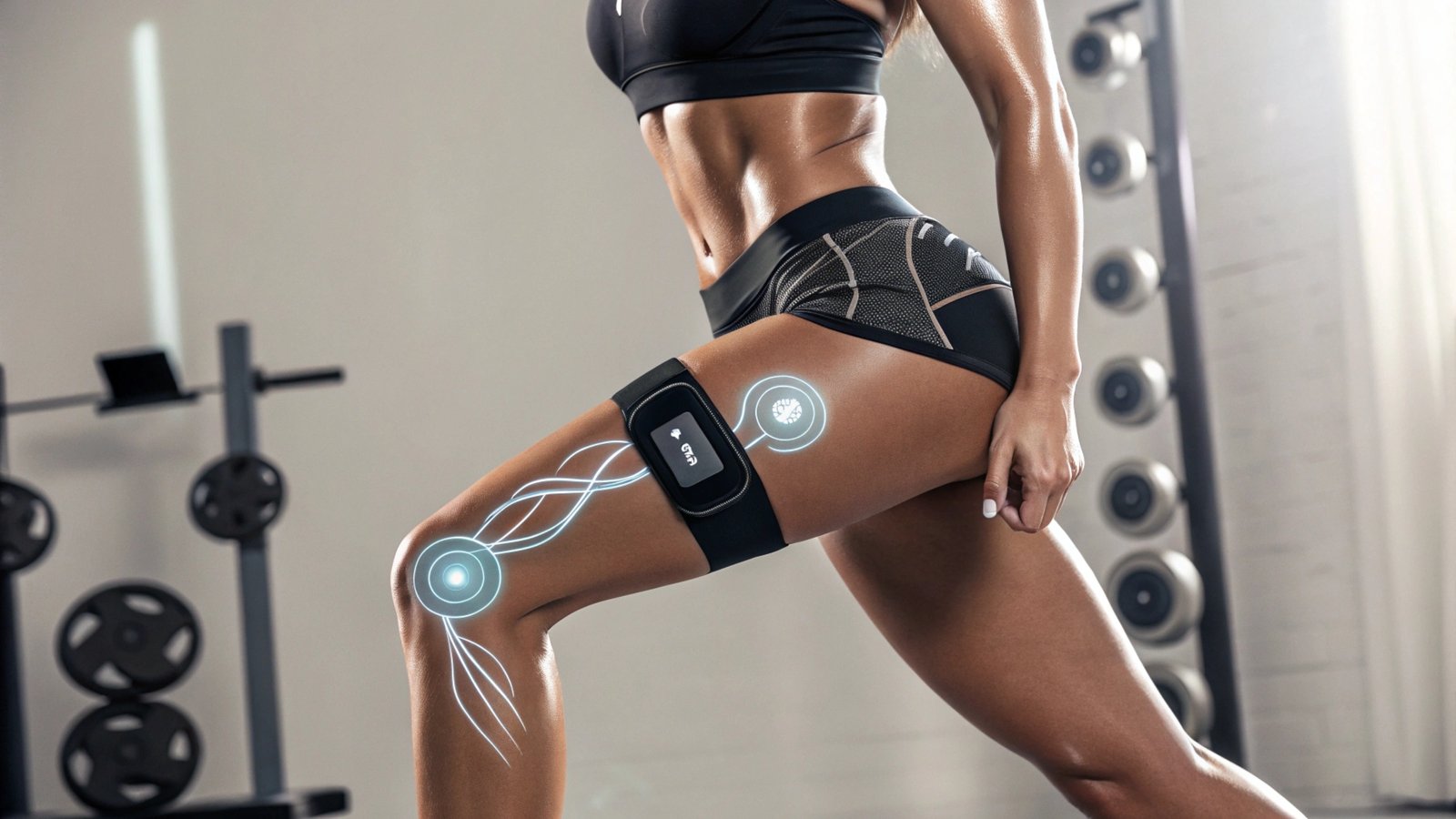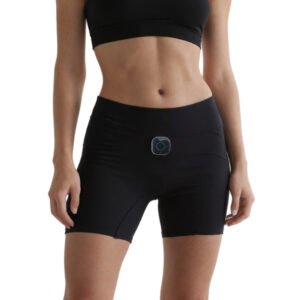Imagine achieving muscle recovery, pain relief, or fitness goals—all from the comfort of your home. EMS (Electrical Muscle Stimulation) machines offer this promise, but what makes them effective, and are they suitable for everyone?
EMS machines for home use work by sending electrical impulses to targeted muscles, stimulating contractions. They improve muscle recovery, relieve pain, and aid in fitness. When used correctly, they are safe and efficient.
Let’s dive deeper into how EMS machines function, their benefits, safety tips, and how to choose and use the best ones for home use.
How Does an EMS Machine Work for Home Use?
EMS machines operate on a simple principle: electrical impulses mimic your body’s natural signals, causing muscles to contract and relax. This process, although simple, has profound benefits for recovery, strength, and pain relief.
EMS machines work by delivering electrical pulses to specific muscle groups through electrode pads. These pulses trigger involuntary muscle contractions, mimicking natural movements and aiding recovery.
The Science Behind EMS Technology
EMS bypasses the nervous system to activate muscles directly. The electrical signals penetrate the skin, stimulating motor nerves and engaging muscle fibers. This leads to:
- Increased circulation for quicker healing.
- Improved muscle tone for strength and endurance.
- Pain relief by reducing tension in affected areas.
Key Components of a Home EMS Machine:
- Control Unit: Adjusts intensity, pulse type, and duration.
- Electrode Pads: Conduct electricity and target specific muscles.
- Power Supply: Battery-operated or rechargeable for portability.
Benefits of Using EMS Machines at Home
EMS machines aren’t just convenient—they also bring clinically-backed benefits to your wellness routine.
Using EMS machines at home promotes recovery, reduces pain, improves muscle performance, and saves time compared to traditional therapies.
Everyday Benefits of EMS Machines
- Muscle Recovery: Enhances blood flow to clear lactic acid post-workout.
- Pain Relief: Alleviates chronic and acute discomfort from injuries.
- Strength Building: Targets muscles that are harder to engage during regular exercises.
- Flexibility and Mobility: Keeps muscles limber, reducing stiffness.
Comparing EMS to TENS Devices
EMS machines and TENS devices may look similar, but their purposes differ significantly.
| Feature | EMS | TENS |
|---|---|---|
| Target Area | Muscle fibers | Nerve endings |
| Purpose | Muscle activation | Pain management |
| Intensity Level | Higher | Lower |
Safety Considerations When Using EMS Devices at Home
While EMS machines are generally safe, improper use could lead to discomfort or inefficiency. Taking precautions ensures an effective and safe experience.
Follow manufacturer guidelines, avoid improper electrode placement, and consult a healthcare provider if you have medical conditions like pacemakers or epilepsy.
Common Safety Guidelines
- Skin Preparation: Clean skin before use to prevent irritation.
- Session Duration: Avoid exceeding recommended session times.
- Proper Pad Placement: Place electrodes away from sensitive areas, like the neck or chest.
When to Avoid EMS Machines
- Medical Conditions: Not suitable for people with heart conditions, pacemakers, or epilepsy.
- Pregnancy: Use only under medical supervision.
- Damaged Skin: Avoid using pads on wounds or rashes.
Quick Safety Tips:
- Begin with a low-intensity setting and increase gradually.
- Inspect electrode pads for wear and tear before every session.
- Avoid using EMS while sleeping or driving.
Top-Rated EMS Machines for Home Use
Not all EMS machines are created equal. Here are some trusted models for home use.
Top EMS machines feature customizable settings, user-friendly designs, and durable components. Brands like Compex, PowerDot, and Hidow offer high-quality devices.
Features to Consider:
- Adjustable Intensity Levels: Cater to varying muscle needs.
- Portability: Lightweight designs and rechargeable batteries.
- Durable Electrodes: Long-lasting and skin-friendly pads.
Best EMS Machines for Home Use:
| Brand | Model | Key Features | Price Range |
|---|---|---|---|
| Compex | Edge 3.0 | Multiple programs for recovery and fitness | $200–$300 |
| Hidow | XPD-12 | Compact, customizable intensity levels | $150–$250 |
| PowerDot | 2.0 Duo | App-controlled, portable, dual-channel system | $250–$350 |
How to Use an EMS Machine at Home Effectively
Using an EMS machine correctly can maximize its benefits, from pain relief to improved muscle tone. Proper usage ensures safety and optimal results.
Prepare your skin, place electrodes accurately, select the appropriate program, and adjust the intensity gradually to make the most out of your EMS sessions.
Step-by-Step Guide to Using EMS at Home
- Prepare Your Skin: Clean and dry the area for better electrode adhesion.
- Position the Electrodes: Follow the manual for correct pad placement.
- Select a Program: Choose a setting suited to your goal (e.g., pain relief or recovery).
- Adjust Intensity: Start at a low level and increase gradually for comfort.
- Post-Session Care: Remove pads gently, clean the skin, and store the device properly.
Common Mistakes to Avoid:
- Placing electrodes too close together.
- Using EMS on the same muscle for excessive durations.
- Ignoring device maintenance, leading to malfunction.
Conclusion
EMS machines bring muscle recovery, pain relief, and fitness benefits to your doorstep. By understanding their functionality, safety measures, and proper usage, you can confidently integrate them into your wellness routine. Choose a reliable device and follow the recommended practices for the best results.





